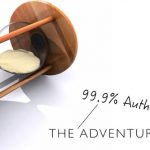LA resident Cynthia Lim, author of the book, “Wherever You Are: A Memoir of Love, Marriage and Brain Injury,” returns to the show a year after our first interview to talk about how her life has changed since the death of her husband, Perry. Retired from working in the LA Unified School District, Cynthia has also raised two grown sons and been a fulltime caregiver for her husband. She talks about the gradual changes she’s made, to her house and in her life, now realizing this is a point in her life where she has the freedom to actually do what she wants to do. Traveling on her own still comes with feelings of guilt, but Cynthia recently gained perspective talking with others at a recent conference of the Well Spouse Association, where she delivered a keynote speech. Cynthia Lim holds a BA in Experimental Psychology from UC Santa Barbara, a Masters in Social-Work from UC Berkeley, and a PhD in Social Welfare from UCLA. Her husband, Perry, passed away on April 30, 2018.
New from Agewyz Media: Life Stories for the Ages
Subscribe to The Agewyz Podcast on iTunes
Got a story to share? Email us any time at jana@agewyz.com
- Cynthia and Perry
- In Florence, Italy for a writer’s retreat
- Hiking solo
Listen to our previous interview with Cynthia: Episode 151
Explore Cynthia’s writing: Cynthia Lim
Read an excerpt from “Wherever You Are”: Excerpt
Mentioned in the show:
The Well Spouse Association
WriteGirl – LA non-profit empowering teen girls
Music:
“Early Rising” by Dlay | CC BY NC ND | Free Music Archive
“Beautiful Rain” (stripped down remix) by Ketsa | CC BY NC ND | Free Music Archive
INTERVIEW TRANSCRIPT:
JANA PANARITES (HOST) – About a year ago I spoke with Los Angeles resident Cynthia Lim, author of the book, “Wherever You Are: A Memoir of Love, Marriage and Brain Injury.” If you missed that conversation, go back and give it a listen. It’s episode number 151, and we’ll link to it in the show notes for today’s episode if you’d like to access it from there. Cynthia’s memoir tells the story of how her idyllic life in Southern California was upended when her husband, Perry, suffered a cardiac arrest, which then led to what’s called anoxic brain injury. This frightening event happened in 2003, while Cynthia and her husband Perry were vacationing in Portland, Oregon. For the next 15 years, as she sought help from an often unhelpful medical community, Cynthia battled her own feelings of guilt and isolation, both as her family’s fulltime wage earner and as the primary caregiver for her husband, Perry. And then, in April of 2018, just months before her book was published, Perry passed away. Cynthia has graciously agreed to come back on the show to tell us how she is once again remaking her life, this time without Perry. Cynthia Lim, welcome back to The Agewyz Podcast.
CYNTHIA – Thank you. It’s wonderful to be here.
JANA – So to put this in context, you have a doctorate in social welfare. And about a year before Perry died, you retired from a very fulfilling career in education, working as an executive in the LA Unified School District. And so you retired when Perry was still alive. And you wrote about this in your memoir – about how you were anticipating a life with him that wasn’t what you imagined before his brain injury, but would still be enjoyable because you wouldn’t have the pressure of a demanding career. So I wondered what were those last months like before he died and during the time you were retired, and you had more time for him?
CYNTHIA – It was wonderful. You know, I retired thinking that I’d have more time to spend with him and that we could do road trips, you know, to various places, because it was harder to travel with him on planes or for long distances. But I had all these ideas planned that, you know, we would take road trips to the southwest or visit our son in Tucson. And it was just a much more relaxed way of life, because when I was working I’d leave the house at seven in the morning, come home around seven at night, and you know, every moment was just focused on either catching up with work, or household chores, you know, meals and that sort of thing. So we had this kind of very relaxed lifestyle after I retired.
CYNTHIA – I kept our caregiver that I’d had when I was working, so I actually had days to myself. Because he would still take Perry to all his activities during the day. So for the first time in my life, I was finding that I had time for myself, which was totally different, because you know –
JANA – yeah, during the day, in particular, right?
CYNTHIA – Yeah. Yeah.
JANA – And Perry had a male caregiver, it sounds like?
CYNTHIA – Yes. Yeah. And Perry was delighted that I was home so much. You know, I just remember one morning when we woke up, because, you know, usually when I was working, I’d wake up and he’d still be asleep. But he woke up and he looked at me and he was smiling. And I said, What are you smiling about? And he said, YOU. Because, you know, I realized all these years –
JANA – he didn’t see you, probably.
CYNTHIA – You know, he never woke up and saw me there. It was always the caregivers.
JANA – Right. So the last time that we spoke, I’m paraphrasing this, but you said “It sounds strange, because the whole time I was in caregiving mode, I remember thinking, how much longer am I going to be doing this? Am I going to be doing this in my 70s? In my 80s or 90s?” And of course, this is a very common thought for caregivers, even if it’s not openly stated. You just don’t know how long it’s going to last, and you’re just wondering, oh my gosh, how can I sustain this? And you wrote about that in your memoir, too.
JANA – And then you went on to say in our interview, “And then when he passed away, it’s like, I would give back any of that just to have him back. The caregiving was an inconvenience. But boy, the emptiness of not having him here is so much worse than the worst parts of caregiving.” And you characterized that emptiness so well in a blog post about your visit to the Grand Canyon, which happened about a month after Perry’s death. First of all, I’m really surprised that you actually got out of the house within a month after his death, because it’s so debilitating – grief – right?
CYNTHIA – Yeah.
JANA – And you wrote about grief. I wonder if you can kind of talk through that experience of going through to the Canyon in the context of your grief.
CYNTHIA – Yeah, my kids were actually wonderful during that time. I – you know, I have two sons, one lives in New York and one lives in Tucson, and the hardest part for me was actually being home in those months right after. I think that THE moment that was the hardest part for me was, you know, after everybody had left. You know, because after the funeral, family was here, my kids were here, but after everybody went home and I was in the house by myself, I think the hardest part for me was that part in the afternoon at like four or five in the afternoon when Perry would be coming home with the caregiver. This is the year after I retired. And I would be waiting for them at the kitchen table, and I’d, you know, wait to hear their footsteps on the walk, coming into the house. And I think the hardest part for me was that first day, knowing that I would never hear those footsteps again.
CYNTHIA – And that grief was just so hard and intense and unbearable that for many months afterwards, it felt really hard being in this house, because it didn’t feel like my house yet. It was still our house with half of us missing. So, my kids were great. They were just like, Okay, you know what? Let’s get your mind off of it. I went to the Grand Canyon with my son. He’s like, Let’s just go do something. You know, I have a few days off – let’s just go see the Grand Canyon. And so we did that a month after. And it was helpful just to kind of step out of that grief, you know, of being home.
JANA – Mm-hmm. But it travels with you. The grief.
CYNTHIA – Oh, yeah. Yeah. Because even though you change the setting, the grief follows you everywhere.
JANA – Did you have folks coming over to the house, dropping things off, in the weeks afterwards? Did you, you know, did you have visitors? Because I remember that kind of stopped at a certain point after my dad died, because I was home living with my mom at that point, and people just kind of stopped coming. And that was weird.
CYNTHIA – Yes and No. I actually have a really strong support network in my neighborhood. I actually have some women that I work out with three times a week, and it’s at my house.
JANA – Oh, okay.
CYNTHIA – So, you know, three times a week, I have this kind of built-in social and workout kind of opportunity. But I also had friends that had recently lost husbands, and two of them in particular were so great because they waited until those first few weeks when everyone’s gone. And they would call and say, Let’s go have lunch. And, you know, I never felt like leaving the house. It just felt too painful just to be out in public.
CYNTHIA – But they pushed and prodded me, and I always felt better after I went out and saw them, even though it’s, you know, just for a meal, just to get out of the house and to kind of step out of it for a little bit. So that was really helpful. But you know, there were just many, many nights and days that just felt so strange, because we’d always been together in this house. We’ve been in this house for 30 years and, you know, it’s always been – together. So…
JANA – Yeah. I really enjoyed your blog post in June of 2018. Again, very soon after Perry died, you posted a really moving blog post about how you couldn’t bear to part with his belongings. His toothbrush was still in a cup and, you know, these reminders of the person who’s gone are so eerie in a way. But you did something that was really sweet and moving, and the post is titled “Piecing Together Memories One Stitch At A Time.” I wonder if you could share what you did with his belongings?
CYNTHIA – Oh, yeah. So a lot of his clothes I just couldn’t bear to pack up and give away, so I cut them up and I made a memory quilt out of them. And it was a great thing because it occupied my mind. I had quilted maybe like 10, 15 years ago, and I’d picked it up again. You know, I got too busy with work and all that stuff, but I picked it up again. But it was kind of a re-education. I had to learn how to quilt again. And that very first one that I made with his clothes, I did it all by hand, hand-stitching, because that’s how I learned to quilt. I mean later I would learn how to use a sewing machine to piece together quilts, because I made – I’ve made like, three more since then.
CYNTHIA – But it was the perfect kind of way for me to deal with my grief because it was like I was still handling parts of him as I was sewing. And part of the fun was kind of just putting all these little pieces of clothes together. Like, there were clothes from his attorney days, there were polo shirts that he wore all the time,` and pants that he used to wear. So it was a very comforting activity for me.
JANA – Uh-huh. And your sister who stayed with you for a week said, You’re doing this by hand?
CYNTHIA [laughs] – Yeah, she was incredulous.
JANA – But that was kind of the whole point for you, even though, as you said, you had to kind of do it by hand because that’s how you learned it – because it was very therapeutic, right?
CYNTHIA – Yeah. Yeah, and it took me – you know, probably I think it took me about six or seven months to actually piece together, but it was great. And then I’ve gone on to kind of master my sewing machine. So I’ve made a quilt for both of my sons, also with his clothes, and I’m working on one for his sister. So, yeah, it’s been a great activity, a great new hobby that I learned. And it helps deal with the grief too.
JANA – Yeah. And how old are your sons now? Tell us a little bit about them.
CYNTHIA – They are… 31 and 34.
JANA – Zach and Paul, right as I recall?
CYNTHIA – Yeah, yeah.
JANA – Okay, so they’re not near you – but Tucson is pretty close.
CYNTHIA – Yeah. Actually, my son in – the one in Tucson, moved to Kansas because he just started a PhD program, so… but there’s still pretty far away.
JANA – How often do you talk with them?
CYNTHIA – Every week.
JANA – Okay, that’s good. You know, also when we last spoke, I cited a passage in your book, which was written about 10 years after Perry’s injury, where you wrote, “other than work in caregiving, what was the shape of my life now?” And now that Perry is gone, the question really has new meaning. So much of your energy was tied up in caregiving for so long. So what do you doing with all that energy now? And what is the shape of your life now? What are your days like?
CYNTHIA – Yeah, well, I’m writing again, I’m trying to write about my family’s immigration history from China. So that’s taking up a lot of my time. I try to devote several hours every day to writing. I’m also taking writing classes, and I just signed up to be a mentor for this organization called WriteGirl, that mentors high school girls and their writing. So I’m attending my first training tomorrow on that.
CYNTHIA – You know, this first year was really, really tough. I think for the first six months, I was just wrapped in grief and it just felt so alien to be in this house by myself. But after six months, there were just like little adjustments I made. I kind of rearranged some furniture in my bedroom – you know, just did little changes around the house to, now I feel like this is really my house. And just in little parts of my life. Like I finally had the realization, just like a month ago, I spoke to this organization called the Well Spouse Association. I delivered a keynote speech about life with disability and what that was like. And everybody in the audience is either a spouse being a caregiver presently, or a former caregiver.
CYNTHIA – And so we talked a lot about the guilt that you feel after your spouse passes away because I feel like, am I really entitled to enjoy myself? Because it’s at the cost of not having this person there. And so this first year, I did a lot of traveling, but I didn’t feel like I could fully enjoy myself, because I felt like I’m doing this, but I would much rather have my spouse here. I mean, I’m doing this because I have this freedom, but I’d rather – it’s like the freedom versus having the person there.
JANA – Right.
CYNTHIA – You know what I mean? It’s a strange feeling, that you can’t fully enjoy the experience. But I think I’m getting to that point where I’m realizing, this is a point in my life now where I can actually do what I want to do. And I think it’s the first time in my life that I’ve kind of had that kind of freedom, because up to now it’s been, you know, being a mother being a caregiver, being a person at work. And now with all those things gone, it’s like, wow, what am I interested in? And, I could do whatever I want. I can pick up and go to New York and visit my son if I want to. And, you know, so I’m, I’m still kind of beginning to enjoy that.
JANA – And have you stopped feeling guilty about that?
CYNTHIA – No, I think it stays with you for a long time.
JANA – It’s interesting what you’ve said about traveling, because I know that you took a trip to Spain recently, and you had taken a lot of solo trips, even when Perry was alive, but always with the awareness that he was being cared for back home, and that he would be there when you got back home. So you kind of answered it, in what you just said. But one of my questions for you was how is traveling alone, different for you now, knowing that Perry isn’t at home, and won’t be there when you return?
CYNTHIA – Yeah, there’s that feeling of kind of emptiness. Because that was always the joy of traveling, like coming back and knowing that he’d be really happy to see me when I get home, or that, you know, there was something to come home to. So it’s a little bit different now, traveling and then coming home to an empty house.
CYNTHIA – But I think being with these other spouses at this conference a few weeks ago, was kind of enlightening for me, because, you know, I talked to others who had lost their spouses maybe 5 years ago, 10 years ago, and they all went through that phase. And they said, you know, it kind of fades and you’ll get used to traveling, and eventually you will start enjoying yourself. So, I’m kind of looking forward to that. I think it’s still new.
JANA – Yeah. Oh, definitely. Did you ever think about selling your house? Or did the idea of not living in that house any longer ever occur to you?
CYNTHIA – No. No, because we, you know, we love this neighborhood. It’s very nice, and very close to the beach. And the house – we remodeled it, like 10 years ago. It’s very comfortable.
JANA – Are you in Santa Monica?
CYNTHIA – I’m in Mar Vista. It’s right south of Santa Monica.
JANA – Okay. How are your sons coping? How have they responded to all of this?
CYNTHIA – I think it’s pulled us closer together. I think we’ve kind of informally – we haven’t said it – but we kind of make more plans to see each other than we would have before. My son from New York has been out to visit quite a bit. And I try to go see my son in Kansas. But I think it’s just that feeling that time is so limited. We were all together this summer, and we scattered some of Perry’s ashes in the Sierras where we used to go backpacking, so that was a really kind of special time for us to be together.
JANA – Yeah. Do they worry about you?
CYNTHIA – Yes and no. I mean, I think they’re happy to know that I have this kind of very supportive network here in our neighborhood. I mean, this is the neighborhood they grew up in. So they feel very grounded here. And this block that I live on, our neighbors are very close. Like, we have a 4th of July block party, and there’s a great feeling of camaraderie on our block. So I don’t think they worry about me too much.
JANA – That’s good. In our last interview, you said that you learned a lot about what to say and what not to say to someone going through a catastrophic experience. And you said you used to hate it when people would say, Well, you know, God doesn’t give you any more than you can handle.
CYNTHIA – Yeah.
JANA – So, have you had similar examples in conversation with people as it relates to the loss of your life partner? Have you learned about what not to say and what to say to someone who was just widowed?
CYNTHIA – Yeah. Some people have said, Well, you know, he was severely handicapped.
JANA – Oh, my.
CYNTHIA – And, and I don’t know what to say to that. You know, are they saying, Well, it’s okay that he passed away because he was so handicapped? You know what I mean? It’s kind of a strange thing to say. And I’ve had other people come up to me and say, Oh, you’re so all alone now. Your boys don’t even live with you. And, and I just think – why would you say that?
JANA – The presumption and the inappropriateness of that is kind of galling.
CYNTHIA – Yeah, it’s like let’s put a little salt on those wounds, you know?
JANA – Yeah. I remember after my father died, I lived with my mom for three years and so I would take her to a lot of medical appointments. And people would never ask her anything, they would always ask me.
CYNTHIA – Oh, as if she wasn’t there?
JANA – And on top of that, as if she was unlikely to be able to even have the emotional wherewithal to articulate what happened, you know. And they just didn’t want to bother her. I mean at the time, she was 80 years old, and you know, I was the middle-aged daughter, who had basically given up her life to take care of my mom. Not that I’m bitter. [both laugh]
JANA – But there was one occasion when we went to the dentist, and my mom went back to have her appointment, and the receptionist said to me, How did he die? And she kind of got really inquisitive. And it was kind of awkward. I was like, I don’t want to talk about this.
CYNTHIA – Oh, yeah…
JANA – And you kind of alluded to that in the awkwardness of having to retell the medical emergency that you had in Portland. And how awkward that is that you have to keep telling that story over and over again.
CYNTHIA – Right, right. And I think, particularly, retelling it when you know the person isn’t there to offer you empathy. It’s more just the curiousness of it.
JANA – Right, right.
CYNTHIA – Like – oh, tell me the details.
JANA – It’s like gossiping. It’s awful.
CYNTHIA – Mm-hmm. Yeah.
JANA – Pivoting to a whole other area. So I understand the upstairs room in your converted garage is now being used as a yoga studio. Tell us about the various iterations of this garage, which kind of represents different phases of your life with Perry. And I found that fascinating – and really encouraging that the space is now being used for something really tranquil and life-affirming.
CYNTHIA – Yeah, so we built this room above the garage, because we have this little tiny house. It was only like, when we bought it I think was like 1100 square feet. And we raised two sons in it. They shared a room.
JANA – That’s really small to [raise a family in].
CYNTHIA – Yeah. But they, you know, they love the neighborhood, they didn’t want to ever move. So we tore down our garage and we put, I think in the old days you’d call it a rumpus room. It’s like a living room. It has a bathroom, but not a shower. And we did it when the boys were teenagers. And so they would hang out up there with their friends, or you know, they’d have a space that wasn’t in the house, and they can kind of hang out there. And then they went away to college. And then Perry had his heart attack. And so for a long time, that room just kind of was empty, because it was hard to navigate the stairs or figure out what to do with it.
CYNTHIA – And then I bought a treadmill, and I bought this recumbent bike for Perry. And so we would go up there after work – he’d be on his recumbent bike and I’d be on my treadmill – to just get some exercise. So that was what was in the room for about 10 years. And then after he passed away – or before he passed away, you know, I started doing these workout sessions with my neighbors in my backyard. And I didn’t really need the treadmill that much anymore. So after he passed away, I gave away the treadmill, I gave away the recumbent bike. And I had this beautiful space up there.
CYNTHIA – And I started taking it yoga, and I have this great yoga instructor. She’s in her 80s. She has this very calming voice. And so my neighbors across the street and I, the three of us, have yoga up there once a week, and it’s a perfect space for it, and the perfect activity because as I lay up there, you know, doing some of the stretches, I look around the room and I think this room has had so many iterations. This is, like, the most comforting one. It’s like the history of our family up here. So it’s a very calming oasis for me.
JANA – Yeah. Well, there’s a lot to be said for transforming spaces just as therapy. And I think that’s really wonderful what you did. Speaking of donations, you donated one of Perry’s wheelchairs to teacher from a community college in Santa Monica where he took classes after his brain injury. And the teacher brings used mobility devices to Africa every year. And this donation seems like it was so meaningful because you love to travel, and traveling was a big part of your life with Perry. And that wheelchair took quite a trip. So tell us where it ended up.
CYNTHIA – Yeah. Yeah, it wasn’t the kind of travel wheelchair, like the fold-up one that we had. This one I bought and I had it at our place in the mountains, in Mammoth, because we’d like to go up to the mountains. And there were several trails that we could take. Some of them were kind of gravel. And so I bought this wheelchair that had bigger wheels, that was easier to push along gravel walkways.
CYNTHIA – And so after he passed, one of his teachers said she goes to Africa every year and they donate all these walkers and wheelchairs. And when she saw that one she said, Oh, this would be so perfect for Africa, because so many of the roads there aren’t paved, and this would be perfect. So you know, I gave it to her, and she gave it away to this woman in African and took a picture. And it was so perfect. I mean, just the smile on this woman who could no longer walk and lived in this village where there weren’t paved roads. And he was like the perfect gift, you know, to pass on.
JANA – Sounds like it. You kind of talked about how you’ve changed and made some new discoveries. But I wondered if – have you learned anything new about yourself, in particular after Perry died?
CYNTHIA – Hmm… that’s a hard one to answer. I think it’s more, you know, all the advice they give you, about when something – a major life event happens, don’t do anything big? Don’t make any big changes? So I don’t think I did any big changes. I just did a lot of gradual ones. And I said, Yes to a lot of things.
CYNTHIA – So I’d signed up for this writer’s retreat in Tuscany, first. In Italy. And then these friends of mine were going to do this trip to Spain on the Camino Santiago. And they invited me to come along. And at first they said, Oh, I can’t do that, because I’ve already signed up for this other thing in Italy. And I – could I do both? And my kids were saying, Yes, you should do both. You know, you should say Yes to all these opportunities. And so I did, and it was a great experience.
CYNTHIA – So I ended up spending like a month in Europe, and the Camino Santiago trip turned out to be a very spiritual kind of experience for me. And so I think what I learned is just say Yes to things. Because my first inclination is always to say, Oh, yes, but… you know, I don’t know if I could do it or…
JANA – Mm-hmm. That’s great advice for everybody, at any point in your life. I know that you are a journal keeper, and you mentioned that you’re working on a book. So my question actually was, will there be a sequel to “Wherever You Are”? And I don’t imagine that you’re going to write a sequel, because it sounds like you’re done with that phase. In other words, I was thinking like a grief book. But it sounds like you’re not interested in going there. Am I right?
CYNTHIA – Oh, I don’t know. I hadn’t really thought about that.
JANA – The book that I interview you for, “Wherever You Are,” is so accessible, and it was so wonderful. It was just really well-written and beautifully written, and a follow-up to that would probably be equally good. Not to say that the book on your family history isn’t going to be great. But I just thought, oh, maybe she can do a sequel now, on grief. But maybe that’s too much.
CYNTHIA – Yeah, I know. I hadn’t really thought about that because I think that there are a lot of grief books out there. But yeah, that might be something worth thinking about. Although I feel like I’m still too close to it, to be able to write about it.
JANA – Right. Yeah. And I think that was really helpful in writing “Wherever You Are,” because obviously, this would have been almost impossible to write after Perry died, right?
CYNTHIA – Yeah.
JANA – Because this book has been in the works for several years. He had the heart attack in 2003. And so you went through all of 15 years of caregiving. Could you even imagine trying to write the book during that time?
CYNTHIA – No. No. No, and I think I started writing about it in 2008. So it was like 5 years later, cuz you know, you need that distance from it.
JANA – Oh, yeah. For sure.
CYNTHIA – To kind of process, and think about…
JANA – Yeah. This is a very indelicate question, but I have to ask: can you imagine your life with somebody else at this point?
CYNTHIA – You know what? Somebody asked me that recently. And I thought, right now?
JANA – I mean, you’re still young.
CYNTHIA – Yeah. Well, I’m 62. That’s not that young.
JANA – It’s young enough.
CYNTHIA – But no, somebody asked me that, and I thought, well, I’m still in love with Perry. So I can’t imagine that. You know what I mean?
JANA – Yeah.
CYNTHIA – That’s kind of like the last thing on my mind right now. I think I’m just enjoying being by myself.
JANA – Yeah. Well, good for you. Well, I’m gonna let you go, unless you have any last thoughts. It’s been really wonderful talking with you.
CYNTHIA – No. It’s been great talking to you, too.
JANA – We’ve been speaking with Cynthia Lim, author of the book, “Wherever You Are: A Memoir of Love, Marriage and Brain Injury.” Cynthia’s essays have appeared in various publications including Hawai’i Pacific Review, Gemini magazine, Hobart and Witness magazine. Be sure to check out our show notes for a link to Cynthia’s website where you can learn more about her memoir and read some of her other writings. And as I mentioned in the open, we’ll post a link in the show notes to our previous conversation. Cynthia, thank you so much for being on the show, and best of luck with everything. Not that luck has anything to do with this, because it’s really about attitude, but I’ll be thinking of you going forward and thanks for coming back on the show.
CYNTHIA – Thank you for having me.

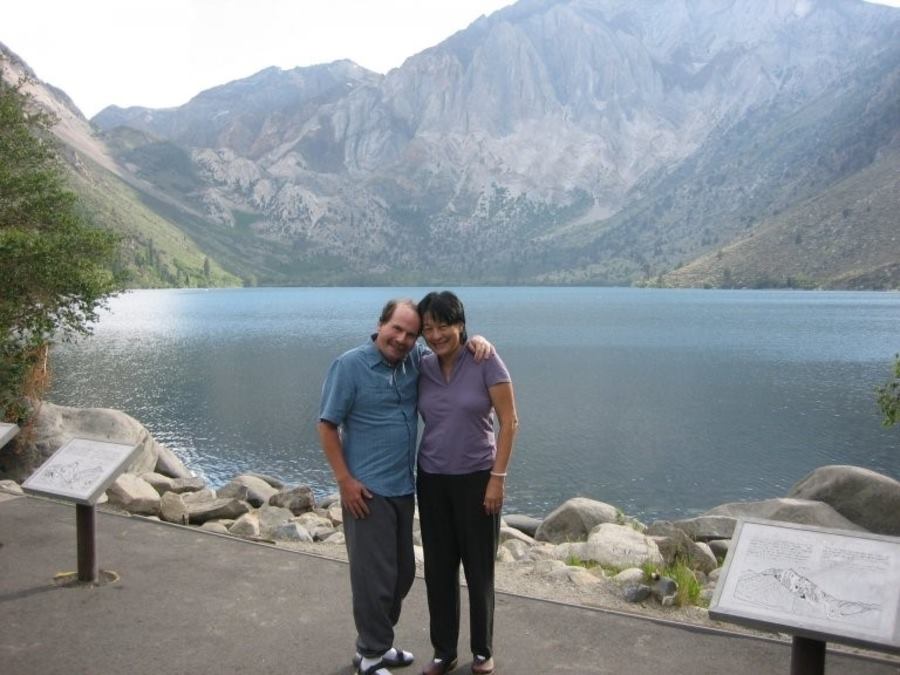
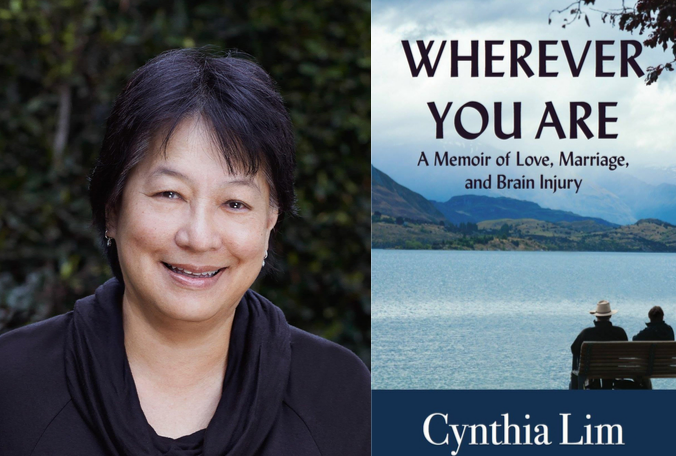

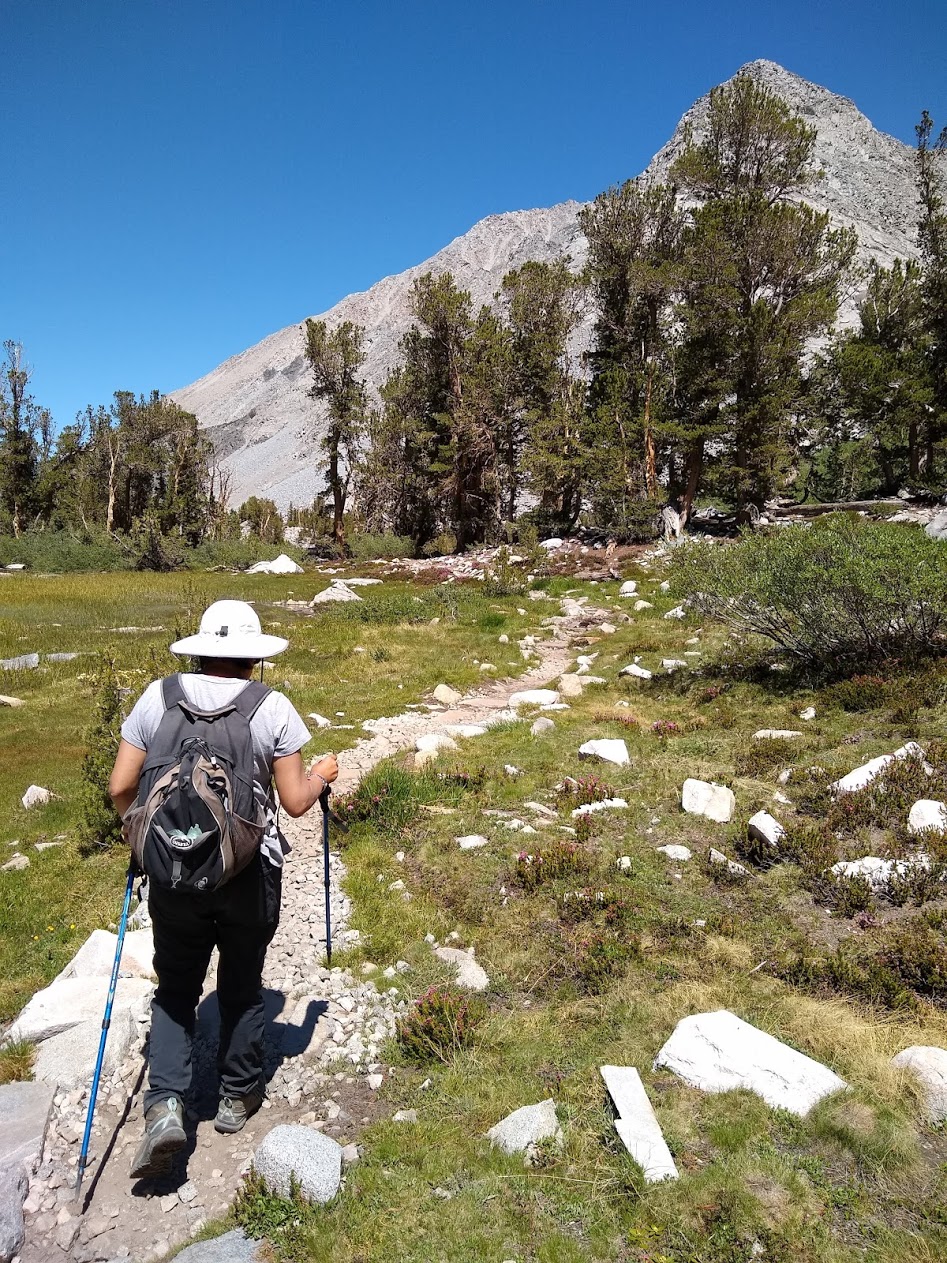
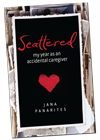 Scattered: My Year As An Accidental Caregiver is available in paperback and eBook at
Scattered: My Year As An Accidental Caregiver is available in paperback and eBook at